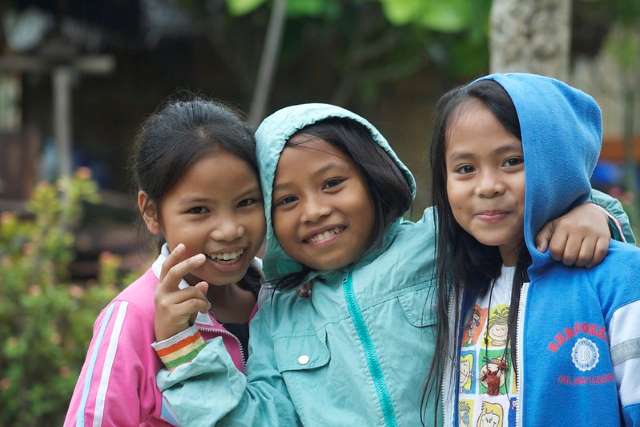A Closer Look at Mental Health in the Philippines
 Mental health plays a significant role in the emotional and physical well-being of a person. However, historically, the Government of the Philippines has given little attention to mental health in the Philippines. Breaking this trend, the Philippines passed the Mental Health Act in 2018.
Mental health plays a significant role in the emotional and physical well-being of a person. However, historically, the Government of the Philippines has given little attention to mental health in the Philippines. Breaking this trend, the Philippines passed the Mental Health Act in 2018.
A Brief History of the Philippines’ Mental Health Policy
In 2001, the Philippines implemented its “first mental health policy.” Followed by a revision in 2016, the Philippines arrived at a nationwide enactment of the newest installment of the Mental Health Act in 2018.
The Mental Health Act designates mental health services as a fundamental right for all Filipino citizens. The Act asserts that “mental health services shall be free from coercion and accountable to the service users” and legislates “the full range of human rights” for people enduring mental illnesses. This includes the right to “participate fully in society and at work, free from stigmatization and discrimination.” The Mental Health Act stands as a significant milestone in psychiatry for the archipelago nation. However, COVID-19 has brought an onslaught of new challenges in terms of mental health in the Philippines.
COVID-19 and the Effects on Mental Health
During the pandemic, the World Health Organization (WHO) recognized the COVID-19 pandemic’s impact on mental health. For some, stress, fear and adversity lead to an increased risk of mental health issues. In addition, quarantines and lockdown restrictions can increase feelings of isolation and loneliness, contributing to poor mental well-being. Due to various barriers, older members of society, in particular, may find it challenging to stay connected during the pandemic.
In addition, the COVID-19 pandemic raised concerns about the mental health of the generation of children growing up in this period. Worldwide, the pandemic has brought to the forefront the need to improve mental health access.
Within the Philippines, a 2020 survey by the Department of Health indicates that around 3.6 million Filipinos found themselves battling mental disorders during the pandemic. Since then, the Filipino government and private organizations have implemented various programs to help citizens navigate their mental health.
Mental Health Programs During COVID-19
The Philippine Mental Health Association (PMHA) is a “private, non-stock and nonprofit organization” that aims to “raise awareness, provide services and conduct research” on mental health in the Philippines. During the COVID-19 pandemic, the group has continually offered mental health services through its project, the Philippine Mental Health Association Online Psychosocial Support (Ensuring Wellbeing Amidst COVID-19). The project offers free online counseling sessions to Filipino people suffering from mental health issues during the pandemic.
Also offering telemental health services, the Ateneo Bulatao Center for Psychological Services provides psychological first aid (PFA), psychotherapy and counseling. On November 26, 2021, the Center announced on a Facebook post that it would offer free brief counseling services for Filipino adults ages 18 and older. During these sessions, individuals “can speak with responders who will listen” and “provide a safe psychological space.” These sessions aim to help strengthen coping mechanisms and instill better emotional control skills.
During the same month, WHO, the United Nations Children’s Fund (UNICEF) and the United Nations Population Fund (UNFPA) launched Project BRAVE (Building COVID-safe Responses and Voices for Equity) in the Philippines, “a two-year joint [program].” Project BRAVE aims “to assist vulnerable women, children and adolescents with mental health and psychosocial services and protection from gender-based violence during the COVID-19 pandemic.”
Crisis Hotline
For those who require immediate mental health services, in line with the Mental Health Act’s mandate to create an around-the-clock mental health hotline as a suicide prevention strategy, the DOH in the Philippines set up the National Center for Mental Health (NCMH) CRISIS HOTLINE in May 2019. This proved to be a crucial mental health resource during COVID-19. The NCMH CRISIS HOTLINE notes a rise in monthly calls to the hotline regarding depression “from 80 calls pre-lockdown to nearly 400.” By the first six months of 2021, the hotline noted “3,329 suicide-related calls” in comparison to 1,282 of these calls in 2020. With an average of 32 to 37 daily callers from March to October 2020, the hotline’s services stand as an imperative mental health resource in the nation.
Looking to the Future
While the pandemic rages on, the Government of the Philippines and various organizations are providing an assortment of resources freely available to the public to improve their mental health. With such commitments, Filipino people can access the mental health resources they require.
– Gaby Mendoza
Photo: Flickr
